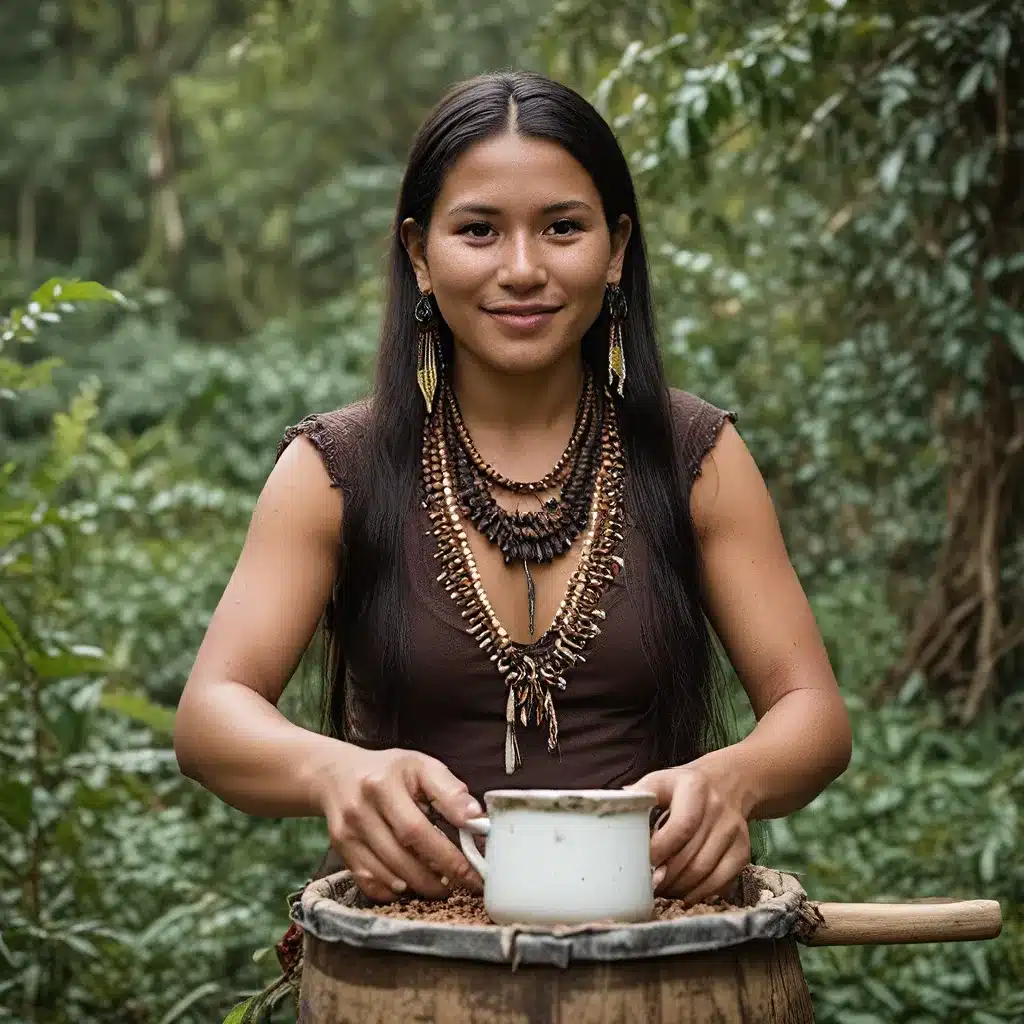
As I sip on my Cuban coffee and adjust my guayabera shirt, I can’t help but feel a deep connection to the cultural traditions that have been passed down through generations. Growing up in a Cuban-American household, I was immersed in the vibrant and flavorful world of coffee from an early age. But it’s not just my personal story – the rich coffee cultures of indigenous communities around the world are a testament to the enduring power of tradition.
Exploring the Bedouin Coffee Ritual
Let’s start our journey in the heart of the Middle East, where the Bedouin people have long held coffee as a sacred part of their cultural identity. As I learned from my research, the Bedouin coffee ceremony is a deeply revered tradition, where the preparation and sharing of this beloved beverage is an intricate dance of hospitality and community.
Immersing myself in Jordan’s Bedouin culture, I witnessed firsthand the meticulous attention to detail that goes into each step of the Bedouin coffee ritual. The roasting of the beans, the grinding with a traditional mortar and pestle, and the brewing over a small fire – it’s a mesmerizing process that seems to slow down time itself. And the sharing of this precious elixir, with its rich and robust flavor, is a symbol of hospitality and community that transcends cultural boundaries.
As I sipped the aromatic Bedouin coffee, I couldn’t help but feel a sense of connection to the ancestral traditions that had been carefully preserved and passed down through the generations. It’s a humbling reminder that coffee is not just a beverage, but a living, breathing expression of a people’s heritage and identity.
Celebrating Vietnamese Coffee Culture
Now, let’s hop over to Southeast Asia, where the Vietnamese coffee culture has its own unique and captivating story to tell. As a first-generation Vietnamese-American, I have a deep appreciation for the resilience and innovation that have shaped this vibrant coffee tradition.
The Vietnamese method of brewing coffee, with its distinctive phin filter and slow, drip-by-drip process, is more than just a technique – it’s a cultural ceremony that has been perfected over generations. The result is a rich, bold, and concentrated coffee that is often sweetened with condensed milk, creating a flavor profile that is both indulgent and soothing.
But the story of Vietnamese coffee doesn’t end there. During the French colonial era, the introduction of robusta beans and the café au lait tradition added yet another layer of complexity to this already diverse and fascinating coffee culture. Today, Vietnamese coffee is enjoyed not only in the bustling streets of Hanoi, but also in cafes and homes around the world, spreading the flavors and traditions of this vibrant nation.
Preserving Indigenous Coffee Traditions
As I delve deeper into the coffee cultures of indigenous communities, I’m struck by the incredible diversity and resilience of these traditions. From the Kona coffee of Hawaii to the Oaxacan coffee of Mexico, each region and community has its own unique story to tell.
Sips Coffee House has long been a champion of these indigenous coffee traditions, working closely with small-scale farmers and cooperatives to ensure that the quality, sustainability, and cultural integrity of these coffees are preserved.
One particularly fascinating example is the Mayordomo coffee from Oaxaca, Mexico. This coffee, grown and processed by the indigenous Zapotec people, is a testament to the deep connection between land, culture, and tradition. The unique terroir of the Oaxacan highlands, combined with the traditional processing methods passed down through generations, results in a coffee that is complex, nuanced, and imbued with the very essence of the Zapotec people.
Similarly, the Kona coffee of Hawaii is not just a beverage, but a living embodiment of the Hawaiian culture and land. The small family farms that cultivate this coffee are not only producing a high-quality product, but also preserving the traditional practices and environmental stewardship that have sustained the Kona region for centuries.
Embracing the Future of Indigenous Coffee Cultures
As I sip my coffee and reflect on the rich tapestry of indigenous coffee cultures around the world, I can’t help but feel a sense of hope and optimism for the future. Traditions may evolve, but the core values and cultural identities that underpin them can endure and even thrive in a rapidly changing world.
Take the example of Cuban coffee and its guayabera shirt counterpart. As a Cuban-American, I’ve witnessed the evolution of these cultural touchstones, as they have been passed down from generation to generation and adapted to new contexts and environments. The Cuban coffee recipe may have been tweaked and perfected over time, but its essence – the bold, aromatic, and unapologetic flavor – remains a powerful symbol of Cuban identity and heritage.
Similarly, the guayabera shirt, once a practical garment worn by Cuban farmers, has transcended its utilitarian roots to become a sartorial statement of Cuban culture and pride. It’s a living, breathing example of how traditions can evolve and adapt while still honoring their roots.
As I look to the future of indigenous coffee cultures, I see endless possibilities for innovation, collaboration, and celebration. Research and innovation in sustainable farming practices, processing techniques, and equitable supply chains can help ensure that these traditional coffee cultures not only survive, but thrive in the modern world.
And as consumers, we all have a role to play in supporting and championing these indigenous coffee traditions. By seeking out and enjoying these unique and flavorful coffees, we can celebrate the rich cultural heritage that they represent, and ensure that these traditions are passed down to future generations.
So, as I take another sip of my Cuban coffee and straighten my guayabera shirt, I can’t help but feel a sense of gratitude and excitement for the endless wonders of indigenous coffee cultures around the world. It’s a journey of discovery and connection that I’m honored to be a part of, and I can’t wait to see what the future holds.















